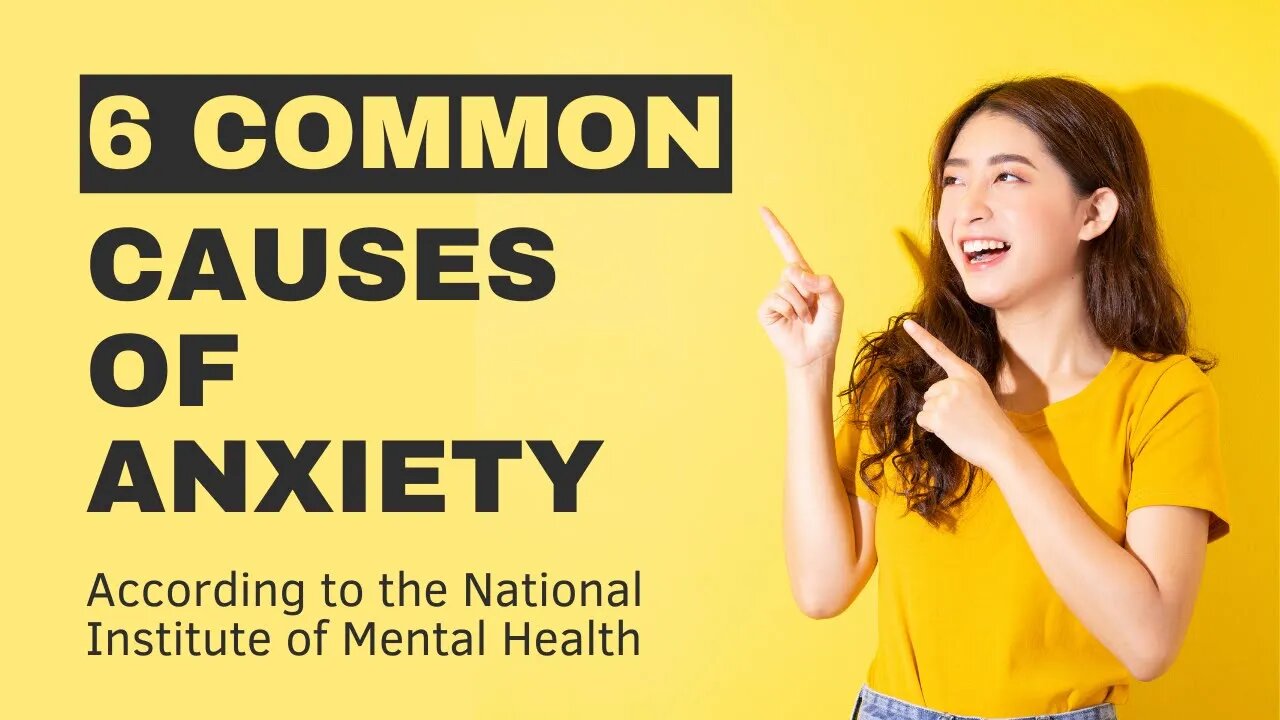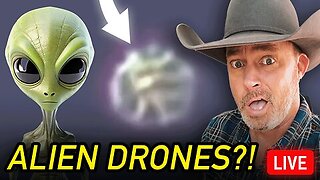Premium Only Content

6 Common Causes of Anxiety
from @Psych2go
According to a recent survey by the National Institute of Mental Health (2017), Anxiety is the most common mental illness, with over 40 million adults in the US alone being diagnosed every year. The American Psychological Association (2013) defines anxiety as a future-oriented concern that may lead people to avoid situations that trigger or worsen their distress. Do you have experience with anxiety? Do you know someone who is often anxious? What other symptoms of anxiety do you recognize? There are in fact many types of anxiety disorders, including generalized anxiety disorder, Obsessive-compulsive Disorder (OCD), Panic Disorder, Post-Traumatic Stress Disorder (PTSD) and Social Phobia or Social Anxiety Disorder. You can watch the video here: https://youtu.be/IzaNQAh3NiY
#anxiety #anxietydisorders
Credits
Script Writer: Chloe Avanasa
Script Editors: Kelly Soong
VO: Amanda Silvera
Animator: Napiart
YouTube Manager: Cindy Cheong
Our sources:
National Institute of Mental Health. (November 2017). What Are Anxiety Disorders?. Retrieved from nimh.nih.gov/health/statistics/any-anxiety-disorder.shtml
Nolen-Hoeksema, S. (2000). The role of rumination in depressive disorders and mixed anxiety/depressive symptoms. Journal of abnormal psychology, 109(3), 504.
Laux, L., & Krohne, H. W. (Eds.). (1982). Achievement, stress, and anxiety. Hemisphere Publishing Corporation.
Caplan, S. E. (2006). Relations among loneliness, social anxiety, and problematic Internet use. CyberPsychology & behavior, 10(2), 234-242.
Stearns, P. N. (2012). American fear: The causes and consequences of high anxiety. Routledge.
Greenson, R. R. (1959). Phobia, anxiety, and depression. Journal of the American Psychoanalytic Association, 7(4), 663-674.
Reiss, S. (1991). Expectancy model of fear, anxiety, and panic. Clinical psychology review, 11(2), 141-153.
Kinsey, S. G., Bailey, M. T., Sheridan, J. F., Padgett, D. A., & Avitsur, R. (2007). Repeated social defeat causes increased anxiety-like behavior and alters splenocyte function in C57BL/6 and CD-1 mice. Brain, behavior, and immunity, 21(4), 458-466.
-
 1:04:12
1:04:12
PMG
1 day ago"I’ll be DRONED for Christmas!"
2.37K -
 23:38
23:38
RealitySurvival
1 day agoBest Anti-Drone Rounds For Self Defense
2.35K2 -
 57:43
57:43
barstoolsports
14 hours agoBest Shot Wins The Game | Surviving Barstool S4 Ep. 7
193K9 -
 1:52:24
1:52:24
Kim Iversen
9 hours agoLuigi Mangione Charged With TERRORISM | Liz Cheney Accused Of WITNESS TAMPERING, Faces 20 YEARS IN JAIL
99.9K129 -
 6:50:10
6:50:10
Akademiks
10 hours agoJay Z says he aint NEVER been friends w/ DIDDY! Bhad Bhabie lost her man? Travis Hunter Down Bad?
106K12 -
 2:27:04
2:27:04
AirCondaTv Gaming
9 hours ago $21.76 earnedWar Thunder - Tankering Around for That 10 Bomb
53.6K4 -
 4:19:05
4:19:05
SpartakusLIVE
11 hours agoThe MACHINE locks in for 12-hour POWER stream
37.1K1 -
 1:58:40
1:58:40
Robert Gouveia
11 hours agoJ6 Coverup: Prosecute LIZ CHENEY; NY Judge REJECTS Immunity; Trump Breaks Gag?
168K76 -
 2:22:06
2:22:06
WeAreChange
9 hours agoPSYOP Spreads: Drones Shut Down Airport In New York!
106K49 -
 1:31:18
1:31:18
Redacted News
11 hours agoEMERGENCY! NATO AND CIA ASSASSINATE TOP RUSSIAN GENERAL, PUTIN VOWS IMMEDIATE RETALIATION | Redacted
245K449